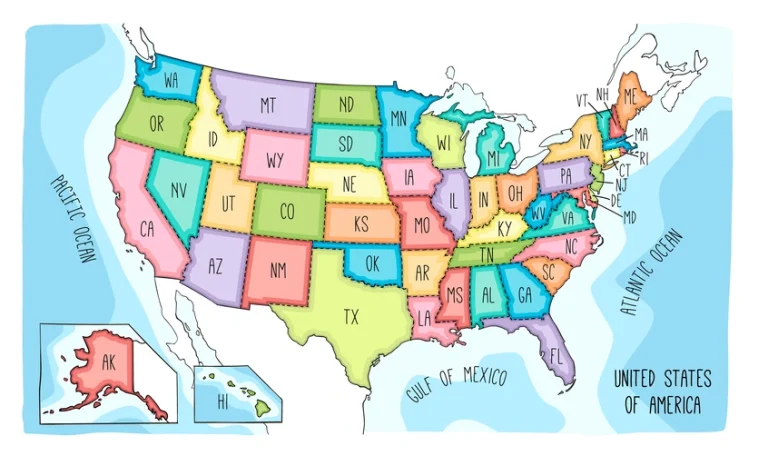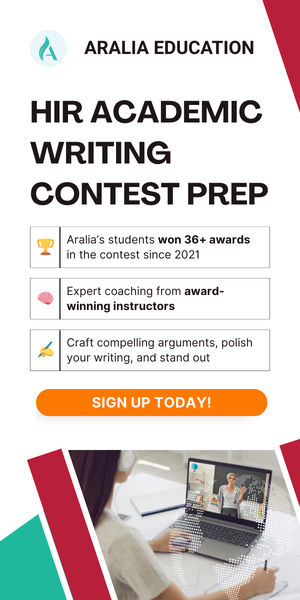1. What Are Some Common Journalism Career Paths?
Journalism is much more than just writing news articles. With the advancement of technology, the field of journalism has evolved to encompass many different storytelling styles. Whether you are already excited about a particular field, or maybe you are just beginning to delve into the world of journalism, here’s a list of common journalism career paths to help you broaden or narrow down your interest:
Print Journalists report and write articles that are published in physical newspapers and magazines. They gather and analyze facts about newsworthy events based on interviews, investigations, and research.
- Print journalists report the latest world news, and they might also write reviews and feature stories about local restaurants and entertainment events.
- Broadcast Journalists deliver news stories through video and audio, often via television and radio. News anchors and podcasters are examples of broadcast journalists. Like print journalism, broadcast journalism can cover various specializations, from breaking news to entertainment or sports, and more.
- Photojournalists use pictures to present news stories. They may be capturing photos of the Syrian civil war, the life of the indigenous people of the Arctic, the Super Bowl kickoff, or a local Thanksgiving Day parade. Photojournalists also write captions to give more context to the photos.
- Investigative Journalists work diligently—sometimes for several years—to uncover an in-depth story on a topic of public interest. A famous example is the front-page stories about the Pentagon Papers by The New York Times and The Washington Post. The work of investigative journalists often leads to large-scale debate and may even shape history.
- Political Journalists inform the public about the government, political candidates, federal elections and other political activities, from local to national and international news.
- Editors work closely with reporters and writers to plan and edit content. They are responsible for overseeing the selection and publication of news stories for print or broadcast.
Having a journalism degree also provides you with a fundamental skill set that’s transferable to a variety of jobs, including those outside the traditional media field, such as:
- Content Marketers – Journalism and content marketing both boil down to the idea of storytelling. Journalists are trained on how to be empathetic to their audience and write a compelling piece that touches their heart. Many businesses are also investing in brand journalism, which involves sharing stories about a company that engages the target consumers.
- Market Research Analyst – Journalists are known to be inquisitive, which is also a main quality needed in a market research analyst. While journalists discover news stories, market research analysts investigate insights about the market through data on consumer behavior, keyword research, etc.
- Public Relations Specialists – Many public relations specialists start out with a bachelor’s degree in journalism. Public relations specialists are in charge of maintaining a positive image for the individuals or organizations that they work for. Solid communication and writing skills are essential for a public relations specialist.
2. How to Prepare for a Journalism Career in High School
Academics
Some high schools offer journalism classes that you can take to explore your passion, but being a good journalist also requires you to have a well-rounded education that incorporates academic experiences like:
- Advanced/AP English
Whether you want to be a reporter, a photojournalist, or an editor, reading and writing are crucial skills for an aspiring journalist. Advanced and AP English classes will not only give high school students an extensive background in critical thinking, but also prepare them for college-level writing.
AP English Language and Composition teaches you to synthesize information and construct well-developed arguments, which are both important for journalists, as they often need to deliver a story quickly and effectively. Additionally, AP English Literature and Composition emphasizes analyzing complex texts—necessary abilities when you need to understand other journalists’ perspectives. Read more here to learn the differences between the two AP English courses.
- Foreign Language
If you come across an interesting story that involves someone who doesn’t speak the same language as you in your future journalism career, you don’t want to regret not having learned a foreign language. Even native speakers may need to take 30 years to fully master a language, so it’s not too early to start taking a foreign language class in high school.
Beginning to learn a new alphabet or pronouncing new sounds like the “rr” sound in Spanish may seem like a daunting task, but there are 5 steps you can take to get better at a foreign language. If your school doesn’t offer a foreign language class that you want to take, here are 6 websites that help you pick up a language fast.
- Math
While journalists are often reputed to be math-hating, journalism and math can be a perfect fit as interdisciplinary studies. Knowing how to interpret numbers logically and using them in narratives are an integral part of being a journalist, especially if you want to pursue a data journalism career. In high school, AP Statistics can teach you how to analyze data and justify your conclusions.
- Other classes
Journalism is an all-encompassing field, from art to science, to politics and more. Depending on your specific area of interest, you may want to take more classes in high school to expand your knowledge and skills for your future journalism career. For example, if you hope to become a political journalist, you can take AP U.S. Government or AP Comparative Government and Politics to learn about national and global political affairs. If you are interested in a science journalism career, consider taking the relevant AP Physics, Chemistry, Biology, or Environmental Science classes.
Extracurricular Activities and Competitions
Journalism is about hands-on experience rather than simply learning knowledge in the classroom. Enthusiastic young journalists often participate in and take on a leading role in their high school student newspaper and yearbook. Many high schools have already established these publications, so you can join in by reaching out to the faculty advisor or student editors. You may start by reporting on an assigned story or taking pictures at your school’s football game, but don’t be afraid to pitch your ideas to the editors!
There are many other extracurricular opportunities in high school for you to get the scoop on what it’s like to be in a journalism career. From campus radio, to photography club, to Model UN, your high school journalism career can take many different forms. If your school doesn’t have an organization of your interest, you can be the one to start it.
In terms of journalism-related contests, the Scholastic Art and Writing Awards is the longest-running literary and art competition in the U.S. You can submit your works to the Journalism category, and you can also enter other categories like photography and poetry, if they are of interest to you.
For young writers, there are a number of other writing competitions that you can enter to boost your college applications. The New York Times Personal Narrative Writing Contest lets you harness your creativity in telling a true story about a meaningful life experience. Young Authors Writing Competition is another contest for you to submit both creative nonfiction and fiction.
Internships
Many major news outlets only provide internship programs for college students, but there are ways for ambitious high schoolers to seek out work opportunities. Your guidance counselors, faculty advisors of your school’s newspapers, and instructors who teach classes related to journalism or English will have lots of resources and tips to help you search for an internship. They may be able to connect you with a local or national news channel, a local newspaper, or another publication.
Alternatively, some media organizations collaborate with high schools to teach students journalistic techniques through hands-on training. For example, PBS has a Student Reporting Labs (SRL) program that offers journalism education in various high schools around the US, connecting students with a network of broadcasting mentors and empowering them to produce local news stories. If your school is not yet with the SRL program, you can reach out to your teachers and faculty advisors to discuss creating a Student Reporting Lab.
Attend a Journalism Summer Program for High School Students
Summer is the perfect time for you to polish your journalistic skills and meet fellow media enthusiasts who may become your friends and colleagues in your future journalism career. Many of these journalism programs are on a college campus, so it’s also a great way for you to find your dream college. Northwestern’s Medill Cherubs is a prestigious five-week institute for rising seniors to build a foundation in reporting, writing, digital storytelling, etc. If you are looking for a shorter program, Columbia’s Creative Journalism course is a one-week experience that teaches you how to combine truth-telling and storytelling.
If you are interested in learning at a renowned news outlet, The New York Times’ Summer Academy has a variety of courses, from Global Reporting to DIY Filmmaking. For those of you looking to explore other fields of interest, check out these 18 pre-college summer programs for high school students.
3. What Do Journalists Major in College?
Most journalists have a bachelor’s degree in journalism, but it’s not necessarily the route for everyone. Here’s a list of some common education paths for journalists:
- Journalism – Typically, journalists will pursue a bachelor’s degree in journalism, which equips students with the vital skills to become a journalist. Within the journalism field, you can explore concentrations like broadcast, print, photojournalism and more. You can also double major or minor in another area of study, such as History, Astronomy, or Political Science, to complement your education. Some graduates may choose to go on and earn a master’s degree in journalism or another field of interest to deepen their expertise.
- Communication & Media Studies – Communications is another popular major for journalists, especially if you are passionate about multimedia and public relations. While a journalism degree may emphasize reporting and writing skills, Communication and media Studies trains you in crafting messages, empathizing with the audience, and using new technologies.
- Radio, Television & Digital Communication – For students hoping to produce video and audio projects, Radio, Television & Digital Communication is a great major for you to learn how to master various techniques and methods for digital productions. Popular courses include directing, media aesthetics, broadcast technologies, etc.
- English – Many journalists also choose to major in English, which focuses on the use of language and effective communication, as well as critical thinking skills. Some universities also provide creative writing programs that will enhance your storytelling abilities, especially if you are interested in writing feature stories.
Telling the untold, journalists are an indispensable part of democracy, so why not start your journalism career today? From academics, to extracurricular and summer programs, there are so many ways for you to lay the groundwork for your dream job during high school and become a rock-star journalist in the future!










